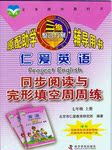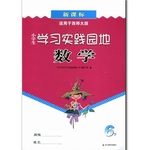题目内容
This is a story from 28 years ago. My dad was a used car salesman. Every Thursday night, he would head off to Shreveport, LA for an auction. Most of the time, I drove a car over there for him so he could sell it at the auction.
One day, I was riding with my dad when he noticed a hitch-hiker with a backpack. Without hesitation, he pulled the car over and offered him a ride. Dad asked him his name, and proceeded to talk to him about all sorts of things. Dad asked him where he was going. The hitch-hiker told him he was heading for the west. I can’t recall why but he told Dad a lot of things that had occurred to him and that persuaded him to make that decision. He talked about the tragic events that occurred to him several years before. He was low in spirits, but I could see that the hitch-hiker’s attitude was changing as someone was really listening to him.
We drove 45 minutes before the hitch-hiker got off. We pulled over and Dad told him to keep his head up and things would start looking up for him soon. He reached into his pocket and handed the hitch-hiker a twenty-dollar bill. The guy smiled. He nearly lit up right there on the cold, dark highway.
We drove on and my dad did not say a single thing. I was still completely amazed by what I had just witnessed. I was always told by everyone never to pick up a hitch-hiker and yet my dad did it every single time he saw one. While reflecting upon that story I came to understand that just one single kind act could change someone’s life, and I am sure that my father’s deed made that poor man’s day.
The underlined words “that decision” in Para. 2 refer to ___________.
A. catching the car B. heading for the west
C. talking about his experiences D. driving 45 minutes
What made the hitch-hiker become less upset?
A. The writer’s father offering him a free ride
B. The writer’s father really listening to him
C. The writer’s father agreeing to driving him to his destination
D. The writer’s father talking to him about all sorts of things
When his father helped the hitch-hiker, the writer ___________.
A. was deeply moved B. strongly disagreed
C. admired his father D. couldn’t understand
Which of the following words cannot be used to describe the father?
A. willing to help B. easy-going C. far-sighted D. full of sympathy
The author wrote the text mainly to _________.
A. show his respect for his father
B. tell a story about his kind father
C. prove his father is the best teacher
D. advise people to learn from their fathers
【小题1】B
【小题1】B
【小题1】D
【小题1】C
【小题1】B
解析:
略

 仁爱英语同步练习册系列答案
仁爱英语同步练习册系列答案 学习实践园地系列答案
学习实践园地系列答案Let children learn to judge their own. A child who learns to talk does not learn by being corrected all the time; if corrected too much, he will stop talking. He notices a thousand times a day the difference between the language he uses and the language those around him use. Little by little, he makes the necessary changes to make his language like other people’s, in the same way, children learn to do all the other things without being taught—to walk, run, climb, ride a bicycle—compare their own performances with those of more skilled people, and slowly make the needed changes. But in school we never give a child a chance to find out his mistakes if we thought that he would never notice a mistake unless it was pointed out to him, or correct it unless he was made to. Let him work out, with the help of other children if he wants it, what this word says, what the answer is to that problem, whether this is a good way of saying or doing this or not. If it is a matter of right answers, as it may be in mathematics or science, give him the answer book. Let him correct his own papers. Why should we teachers waste time in doing such work? Our job should be to help the child when he tells us that he can’t find the way to get their own understanding, how to know what they know or do not know.
1.According to the passage, the best way for children to learn things is ___
|
A.to listen to skilled people’s advice |
|
B.to ask older people many questions |
|
C.to make mistakes and have them corrected |
|
D.to do what other people do |
2.According to the writer, teachers in school should ___
|
A.allow children to learn from each other |
|
B.point out children’s mistakes whenever they are found |
|
C.correct children’s mistakes as possible as they can |
|
D.give children more book knowledge |
3.Which of the following does the writer think teachers should not do?
|
A.Give children correct answers |
|
B.allow children to make mistakes |
|
C.Point out children’s mistakes |
|
D.Let children judge their own work |
4.The passage suggests that learning to speak and learning to ride a bicycle are ___.
|
A.different from learning other skills |
|
B.the same as learning other skills |
|
C.more important than other skills |
|
D.not really important skills |
It was Monday. Mrs. Smith's dog was hungry , but there was not any meat in the house.
Considering that there was no better way. Mrs. Smith took a piece of paper, and wrote the following words on it:“Give my dog half a pound of meat.”Then she gave the paper to her dog and said gently:“Take this to the butcher(* person whose job is selling meat)and he's going to give you your lunch today.”
Holding the piece of paper in its mouth, the dog ran to the butcher's. It gave the paper to the butcher. The butcher read it carefully, recognized that it was really the lady's handwriting and soon did it as he was asked to. The dog was very happy, and ate the meat up at once.
At noon, the dog came to the shop again. It gave the butcher a piece of paper again. After reading it, he gave it half a pound of meat once more.
The next day, the dog came again exactly at noon. And as usual, it brought a piece of paper in the mouth. This time, the butcher did not take a look at paper, and gave the dog its meat, for he had regarded the dog as one of his customers.
But, the dog came again at four o'clock. And the same thing happened once again. To the butcher's more surprise, it came for the third time at six o'clock, and brought with it a third piece of paper. The butcher felt a bit puzzled . He said to himeself,“This is a small dog. Why does Mrs. Smith give it so much meat to eat today?”
Looking at the piece of paper, he found that there were not any words on it!
1.Mrs. Smith treated her little dog quite .
|
A.cruelly |
B.fairly |
C.kindly |
D.friendly |
2.It seemed that the dog knew well that the paper Mrs. Smith gave it .
|
A.might do it much harm |
B.could do it much good |
|
C.would help the butcher |
D.was worth many pounds |
3.The butcher did not give any meat to the dog .
|
A.before he felt sure that the words were really written by Mrs. Smith |
|
B.when he found that the words on the paper were not clear |
|
C.because he had sold out all the meat in his shop |
|
D.until he was paid enough by Mrs. Smith |
4.From its experience, the dog found that .
|
A.only the paper with Mrs. Smith's words in it could bring it meat |
|
B.the butcher would give the meat to it whenever he saw it |
|
C.Mrs. Smith would pay for the meat it got from the butcher |
|
D.a piece of paper could bring it half a pound of meat |
5.At the end of the story, you'll find that .
|
A.the dog was clever enough to write on the paper |
|
B.the dog dared not go to the butcher's any more |
|
C.the butcher was told not to give any meat to the dog |
|
D.the butcher found himself cheated by the clever animal |
